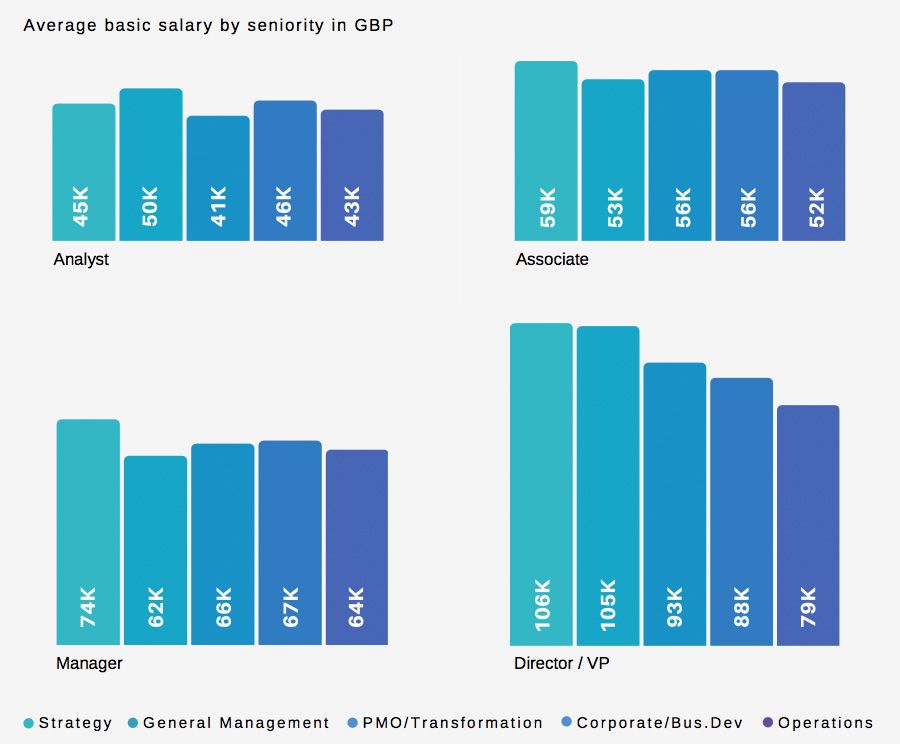
A career as a strategy consultant has many advantages. This profession requires excellent academics. Most large firms require a 2.1 degree from an accredited university. It is highly analytical and requires a degree in science, mathematics or statistics. Starting as an Analyst, a career in strategy consulting can eventually lead to a management position or partnership.
Career path
Most people who work as strategy consultants start planning their next move two to 3 years after they have been hired. There are many reasons why this happens, depending on if there is a better career opportunity or a better fit. The following job description describes a typical day in the life of a consultant to strategy. You will likely spend a lot of time communicating directly with executives, and other groups.
You will work as a strategist consultant to analyze and create strategies and solutions that solve business problems. Additionally, you will consult with clients regarding issues related to strategy implementation. Generally, the roles of a strategy consultant fall into two main categories: traditional consulting roles and the strategic consulting role. While the former is for government or private companies, the latter involves financial, strategic and management consulting. Strategy consultants are often involved in developing new strategies for increasing profits and cutting costs. They also help organizations to analyze competitors and resolve current problems.
Salary
Salaries for jobs in strategy consulting vary depending on the company. Different companies will pay different amounts. The amount of experience required to succeed can also impact how much you make. Other companies pay a bit less than others, so make sure you look into each company's pay structure before deciding on a particular field.

It is common for strategy consultants to have a base salary that is non-negotiable. This is because top consulting firms want consistency for the incoming group. Compensation structures are usually based upon compensation tiers and tend to remain the same for all offices within the same area. Additionally, you will need to take into account the cost of living in your local area.
Work experience
Strategy consulting is a field with a high demand for people with strong analytical skills. This includes the ability analyse large amounts of data and to organize solutions. It also requires the ability communicate information at all levels. This type of job also requires people skills and an understanding of a variety of industries. You will be working closely with clients as a consultant and expected to establish relationships as well as defer tasks.
If you are looking for a career in strategy consultancy, it is important to be knowledgeable in a wide variety of industries. As the role involves collaboration, you will need to be capable of managing a team. It is essential to keep everyone on the same page and avoid miscommunication, as this can send an entire project off track.
Clients
Many benefits come with strategy consulting. First, strategy consultants bring specific expertise and experience. They have helped numerous companies navigate similar decisions and are an invaluable resource for businesses. In times of uncertainty, strategy consulting can help organizations assess their overall strategy. Lastly, strategy consultants can help companies with soft skills and leadership capabilities.
Third, strategy consultancy offers numerous networking opportunities. You will make connections in many different industries and specialties. You will likely be offered high-profile jobs. You might be able to get high-profile work as a financial strategy consultant, for example. They are highly valued because they have the ability to think critically and are able to shine in times of transition.

Education required
The educational requirements for jobs in strategy consulting vary depending on the area of expertise. Employers are generally looking for candidates with at minimum a bachelor's, though some prefer candidates with a Master's. Strategists may also choose to obtain professional certifications beyond formal education.
If you are interested in working in consulting firms, you should consider majoring in business or management. This includes accounting, marketing and finance. You may also find other disciplines useful, such as engineering or social science. Make sure students select the major that is most relevant to their industry interests. An MBA will help students stand out in consulting firms by giving them more knowledge about specific industries.
FAQ
Why would a company hire a consultant?
Consultants offer expert advice to help improve your business' performance. Consultants are not here to sell products.
A consultant is a person who helps companies make better choices by providing sound analysis, and making recommendations for improvement.
Consultants often work closely alongside senior management teams to help understand what they need to succeed.
They also offer leadership training and coaching to ensure that employees are able to perform at their best.
They may be able to advise businesses on ways to cut costs, improve efficiency, and streamline processes.
What contracts are available for consultants?
When they are hired, most consultants sign standard employment contracts. These agreements include details such as how long the consultant will stay with the client, what he/she can be paid, and other important information.
Contracts can also indicate the areas of expertise that the consultant will concentrate on and the compensation they will receive. A contract may state that the consultant will deliver training sessions or workshops, webinars, seminars and other services.
Other times, the consultant simply agrees to complete specific tasks within a specified timeframe.
Consultants often sign independent contractor contracts in addition to their standard employment agreements. These agreements allow the consultant not only to work for himself/herself but also provide payment.
What is the difference between consulting and freelancing?
Freelancers are individuals who work for themselves and offer their services to clients. They charge hourly rates depending on the amount of time spent on a client's projects. Consultants often work for companies or agencies that employ them. Consultants are typically paid either monthly or annually.
Because they set their own hours and prices, freelancers are often more flexible than consultants. Consultants often offer better benefits such as vacation days and retirement plans, health insurance, and vacation days.
What can I expect of my consultant?
When you choose your consultant, they should respond within a few working days. They will often ask about your company's mission, goals and products. They will then send you a proposal that outlines the scope of work and estimates timeframe, fees, deliverables, milestones and other details.
If everything looks good, then the two parties will negotiate a written contract. The terms of the contract will depend on the type of relationship between the two parties (e.g., employer-employee, employer-independent contractor).
If everything goes smoothly, the consultant can begin work immediately. The consultant will have access your internal documents and resources. Additionally, you'll have access their skills and knowledge.
Don't think that consultants are experts. It takes practice and hard work to become an expert in the field you are consulting. You shouldn't expect your consultant will know everything you need to know about your business.
What is a consultant?
Consultants are people who provide services to others. This is more than a job title. You help others achieve their goals. This involves helping them to understand their choices and making the right choices.
Consultants have the ability to solve any problems or challenges that may arise from projects. Consultants can also offer advice and guidance regarding how to implement these solutions.
Consulting should be able address questions related to law, finance and technology.
Statistics
- On average, your program increases the sales team's performance by 33%. (consultingsuccess.com)
- Over 62% of consultants were dissatisfied with their former jobs before starting their consulting business. (consultingsuccess.com)
- My 10 years of experience and 6-step program have helped over 20 clients boost their sales by an average of 33% in 6 months. (consultingsuccess.com)
- According to IBISWorld, revenues in the consulting industry will exceed $261 billion in 2020. (nerdwallet.com)
- "From there, I told them my rates were going up 25%, this is the new hourly rate, and every single one of them said 'done, fine.' (nerdwallet.com)
External Links
How To
How Can I Start A Consultancy Business With No Money?
This is a simple, effective and inexpensive way to get your business started without having to invest any capital.
This tutorial will teach you how to make money from home while improving your skills and earning extra cash.
I'll be sharing some secrets on how to get traffic on the demand, especially for people searching for specific items.
This method is known as "Targeted Traffic". This is how this method works...
-
Find out what niche you want.
-
To find the best solutions on Google, research which keywords people are using.
-
These keywords should be used to create content.
-
Post your articles on article directories.
-
To promote your articles, use social media.
-
You can build relationships with people who are experts in the field.
-
Be featured on these blogs and websites.
-
By sending emails, you can increase your email list.
-
Make money.